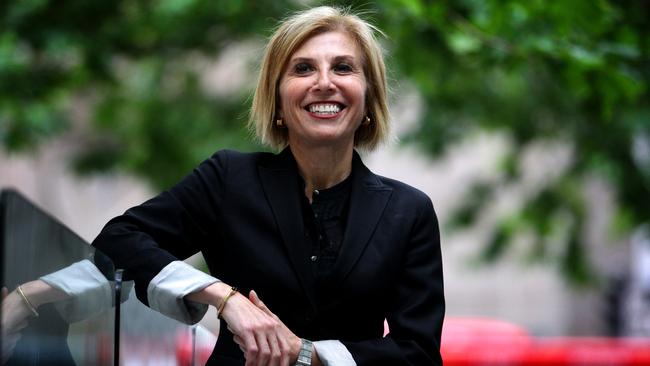Queen’s Birthday Honours: ACTU leader’s advice powered Afterpay chair Elana Rubin
Afterpay chair Elana Rubin made her most important career decision while working for then-ACTU secretary Bill Kelty in the early 1990s.

Afterpay chair Elana Rubin made her most important career decision while working for then-ACTU secretary Bill Kelty in the early 1990s.
At Mr Kelty’s urging, Ms Rubin, somewhat reluctantly at the time, pursued a course in applied finance and investment instead of her preference for postgraduate study in labour law.
“Bill was very influential – he gave me lots of opportunities, and saw something in me that I didn’t,” she says.
“(The course) enabled me to get into superannuation around the start of industry super in the early 1990s, and I became passionate about extending retirement security to workers.
“Bill believed that people who participated in the governance of super should be right across the key issues.”
Ms Rubin has been awarded a Member of the Order of Australia in recognition of her significant service to corporate governance and the community.
Apart from serving as Afterpay chair, she is a director of Telstra and law firm Slater and Gordon, as well as Teach for Australia – an organisation which is committed to achieving equity in education.
For six years until 2016, she was on the board of SecondBite, which works with a range of food suppliers to rescue surplus fresh produce from suppliers and redistribute it to local charities and not-for-profits around Australia.
Ms Rubin became chair of Afterpay in May last year after being a non-executive director several years.
Afterpay has taken all before it in a bid to become “the world’s most loved way to pay”, enabling shoppers to receive products immediately and pay in four equal instalments over a short period of time.
The service is free – and interest-free – for customers who pay on time, and is disrupting the credit card industry, particularly in younger demographics.
The breakneck speed of the company’s expansion into New Zealand, the US and Britain saw it join the ASX20 last December, and its current market capitalisation is almost $30bn.
Ms Rubin says it’s a misconception that a focus on corporate governance dampens the entrepreneurial spirit of a company like Afterpay, which is still run by its billionaire co-founders Nick Molnar and Anthony Eisen.
“I believe what companies deliver is important, but equally how they deliver it,” she says. “We want to have companies which operate for the longer term and focus on their social licences to operate so they can have a positive impact on their communities.”
Corporate governance, she says, is not about ticking a series of boxes, or building a large bureaucracy; it’s about being mindful of how companies do things, and taking heed of the voices of a variety of stakeholders.
This was more likely to add to the strength of a company rather than detract from it.
Ms Rubin’s parents were both immigrants from eastern Europe, with her father working on the wharves in Melbourne until the early 1970s, when he set up an accommodation business.
She believes her interest in communities was handed down from her parents, who were involved in their communities in different ways.







To join the conversation, please log in. Don't have an account? Register
Join the conversation, you are commenting as Logout